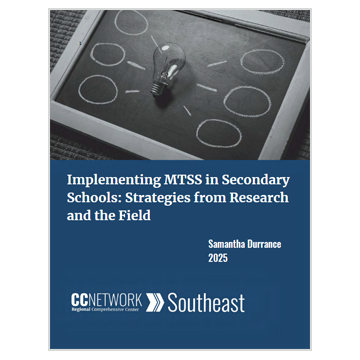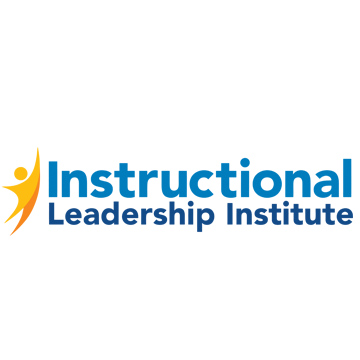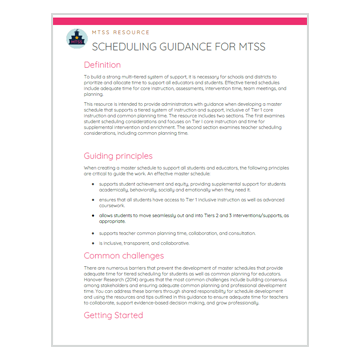Resource Profiles
New Resource Search
← Return to Find Resources | MTSS
Resource Results
Targeted Academic Supports for High School Students
This guide focuses on ways high schools can provide additional instructional time and targeted attention for students who need more intensive support. It focuses on two of four primary models — flex blocks and “double dose” courses — with concrete examples of scheduling, staffing, and resource allocation strategies for the two featured approaches. The guide also provides links to resources on two other promising practices — acceleration academies and high dosage tutoring.
Elementary Instructional Planning Guide
This guidebook helps elementary school leaders and teams create a schedule that supports the school’s values and priorities. It focuses on 4 key decision points and provides a variety of scheduling examples.
Transforming High School by Redesigning the Ninth Grade Experience
Read about schools and one district that rethought the Grade 9 experience in order to create the best possible foundation for high school success. Each case study identifies the “change package” that led to improved student outcomes, resource and scheduling shifts, and structures that supported educator collaboration.
Implementing MTSS in Secondary Schools
Practical strategies to address logistical and instructional challenges secondary schools often encounter implementing MTSS including intervention blocks, scheduling, teaming, and other practices. The 2022 report focused on early implementation. The 2025 report updates and extends the toolkit of strategies and includes additional resources and examples. It also expands the focus of MTSS to include student well-being.
DESE Instructional Leadership Institute 2025 Session Materials
Find workshop materials from DESE’s 2025 Instructional Leadership Institute. Session topics included instructional vision and planning, designing for school belonging, scheduling, student support structures, multilingual learners, budgeting, and more.
MTSS Scheduling Guidance
This resource is intended to provide administrators with guidance when developing a master schedule that supports a tiered system of instruction and support, inclusive of Tier 1 core instruction and common planning time
← Return to Find Resources | MTSS





